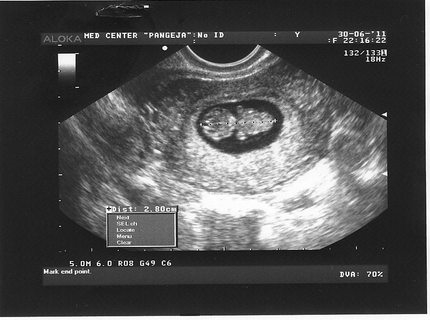The most reliable protection for women is hormonal contraceptives. With their help, you can plan a pregnancy, avoid it.
Also, according to many women, birth control pills provide an opportunity to be liberated during intimate intimacy. If you strictly follow the rules of taking contraceptives, then you can provide a high contraceptive effect.

What every woman should know
What is important to know before you start taking birth control pills? Every woman should understand that taking such pills should be taken very seriously. Otherwise, undesirable consequences may occur. So, before you start using contraceptives, you must:
- To consult a gynecologist;
- Complete a complete examination (pelvic ultrasound in order to detect the absence or presence of diseases such as cyst, fibroids, neoplasms);

- You should take a blood test for hormones during menstruation to maximize awareness of the hormonal background of the body;
- Pass a blood clotting test. Many contraceptives have a lowering property of blood clotting. Therefore, if you have problems, taking medications can cause dangerous bleeding;
- Be sure to visit the surgeon to see if you have varicose veins. Hormonal contraceptives are contraindicated in this disease;
- Do a blood test for sugar. If a woman has diabetes or is hereditarily predisposed to its development, then taking drugs is extremely dangerous;
- After three months of taking contraceptive drugs, you should consult your doctor to re-examine the condition of the body.
Only after performing all of the above actions, the doctor will be able to individually select the required oral contraceptive.
If you are already taking contraceptive drugs, then be sure to observe the frequency: take breaks (2-3 months annually). This should be done in order to "not relax" the ovaries and resume their work on the "release" of hormones.
If you take contraceptive drugs, the natural cycle during menstruation may disappear. Therefore, be careful.
You should also know that in modern medicine there are three types of contraceptive drugs:
- combined;
- progestin;
- non-hormonal.
Combined oral medication (COC) - the most common use. In their composition there are two components: estrogen, progesterone. These components are similar in function to the female hormones, hence the name. COCs are based on the principle of the inhibitory effect of other hormones, stimulating the ovulation process. So, when you enter a small dose of hormones, you "slow down" the process of maturation of the egg.
KOC are divided, in turn, into this type:
- Microdosing - endowed with the smallest proportion of side effects, so they are recommended to young girls who have not yet given birth. For example, "Klayra", "Jess", "Dimia", "Novinet";
- Low-dose - this type of pill is suitable for women who have already given birth ("Yarin", "Silest", "Midian");
- High-dose - suitable as a treatment for diseases at the hormonal level (Trikvilar, Ovidon, Triziston).
Progestogen is included in the gestogenic tablets. They are more benign compared to KOC, however, they are significantly inferior in efficiency. They act on the principle of the effect of synthetic hormone on cervical mucus. So, it thickens, decreases its number, "blocking" the penetration of sperm to the uterus. These drugs are suitable for mothers who are breastfeeding. For example, Mikrolut, Exluton, Lakinet.
Non-hormonal birth control pills contain benzalkonium chloride and nonoxynol. They should be inserted into the vagina for a certain time before engaging in sexual intercourse.
Due to the content of the chemical in the preparation, the spermatozoa are destroyed and completely destroyed. Examples of pills: "Pharmatex", "Contracetin", "Tracepin".
Should I take birth control pills, contraindications
The basis of the tablets are synthetic hormones. After they enter the body, the integrity of the system may be compromised at the hormonal level.
As with any drugs, contraceptives have contraindications:
- absolute character - it is strictly forbidden to use;
- relative character - only after consultation with the doctor.
Absolute contraindications:
- Liver tumor or disease of this organ;

- Hypertension;
- Complications of diabetes;
- Kidney disease;
- If you had a heart attack or you have heart disease and thrombosis;
- With planned or transferred operations;
- The presence of tumors that affect the hormones;
- Systematic diseases;
- When pregnancy.
Relative diseases include:
- Lack of menstruation;
- Controlled epilepsy;
- When smoking;
- Diseases that can be controlled (liver, kidney, diabetes);
- Obesity or allergies.

What birth control pills are better and how to take them
The choice of birth control pills should be treated carefully, given the age feature of the woman. So, it is better to consult a gynecologist for advice.
Preparations of the KOK type are suitable for young and birthless girls. The most effective:
- "Jess";
- Mersilon;
- "Clire".
Birth women should take medium, low-dose drugs:
- "Regulon";
- Miniziston;
- Chloe.
You can start taking contraceptive drugs from adolescence. So, you can protect yourself in the appearance of an unwanted pregnancy and, accordingly, an abortion. For adolescents, doctors recommend such drugs (three-phase):
- Triziston;
- Triquilar.
Birth control pills can have a beneficial effect in the treatment of infertility. So, effective such means: "Janine" "Yarin".
How to take the first time
Be sure to consult your doctor before taking the first birth control pill. Otherwise, an unsuitable drug may cause complications.
Contraceptive drugs should begin to drink after the menstrual cycle has stabilized.
- Before taking, be sure to read the instructions.
- If the pills are combined and their 21 (written on the package), then you can take, without taking a break, for 3 weeks. After drinking all of the packaging, then hand over a seven-day break. After that, you can continue to drink intermittently.
- If the package contains 28 tablets, it means that 21 contain hormones, so they should be taken for 3 weeks without interruption. And the remaining seven tablets in the composition have a placebo, also use them.
- If the package contains 28 mini-pill tablets, use hormonal tablets for a month without interruption from another pack.
Do not forget to explore the contraindications. They are indicated in the instructions.
When is it better to take
Many are interested in what time is best to take pills? We hurry to answer - all contraceptive drugs are best taken at bedtime. Of course, the effectiveness of the drug becomes high if consumed at one time. So, take the first pill as soon as the cycle begins.
If you have already missed, then you should take the next five days of the menstrual cycle.
In the first week of use, use a condom. There are strong contraceptive drugs that can be taken after unprotected sex for 72 hours. However, it is desirable not to allow such situations, because it is stress for the body at the hormonal level.
How to take birth control pills after childbirth
For the first three to four months, a young mother can use contraceptive drugs that are designed for breastfeeding moms, as well as estrogen-free.
Gynecologists recommend starting taking contraceptives after the first menstruation. If an extreme case, it is possible to use vaginal tablets or special candles.
Complications and side effects
- In the first days of taking the pills, reddish discharge may occur - a normal reaction of the body;

- The preparations contain hormones that provoke puffiness, bloating and headaches;
- The progestin hormone can cause irritation, weight gain and acne;
- Appetite increases dramatically, so the appearance of extra pounds is justified;
- A serious thrombosis disease may develop;
- Do not combine smoking and taking medications;
- A defect may appear at the cosmetic level - acne;
- Increases the likelihood of a heart attack, as well as breast cancer, cramps and numbness of the extremities.
Among the complications, doctors distinguish the following:
- the functioning of the ovaries is weakened, as a result - the failure of menstruation;
- endometrial process is inhibited, as a result - tumors and uterine bleeding.
Question answer
What to do if admission is missed?
If you missed an appointment:
- 1 tablet - try not to skip the following techniques;
- 2 tablets - each one missed after 12 hours one by one, also use additional contraceptive measures for seven days (condom);
- more than 2 tablets and had sexual contact - immediately use emergency contraception (postcoital contraceptive), continue to use the pill;
- more than 2 pills and no sex, then take two pills immediately.

Can I get pregnant by taking birth control pills?
The probability of becoming pregnant increases in such cases:
- if KOC is accepted, being late by more than 12 hours;
- if vomiting occurs after taking the pill for three hours;
- if tablets are combined with other drugs (antibiotics);
- with regular intermenstrual discharge and bleeding.
How long can you take birth control pills?
From the point of view of medicine, a woman can use contraceptive drugs until the appearance of menopause.
And a few more tips from the gynecologist - in the next video.















